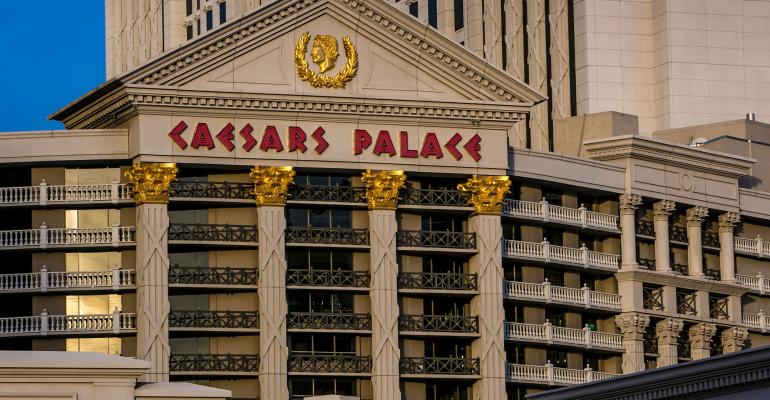(Bloomberg)—Eldorado Resorts Inc. found a surprising source of funds when it needed cash to finance its $17.3 billion acquisition of Caesars Entertainment Corp.: its landlord.
Vici Properties Inc., a real estate investment trust spun off to Caesars’ creditors almost two years ago, played a key role in financing the deal. The company, which already owns 21 Caesars casinos, agreed to buy three more properties for $1.8 billion. It will also provide an additional $1.4 billion -- in exchange for $98.5 million a year in higher rent payments.
Over the past five years, Eldorado has used creative deals like this to transform itself from a small regional player. The transaction announced Monday catapults the little-known company into the big leagues of gambling, giving the Reno, Nevada-based operator banner properties such as Caesars Palace, Harrah’s and Bally’s.
“If you look at past acquisitions, we have found assets that others were not utilizing or really placing much value on and created value from them,” Tom Reeg, an Eldorado veteran who became chief executive officer in January, said Monday on a call.
Sports-Betting Deal
Last year, for example, the company cut a deal with U.K. bookmaker William Hill Plc to bring sports betting to its casinos. The accord gave Eldorado $50 million in William Hill stock, a 20% stake in the company’s U.S. operation and a share of the profit from sports betting.
The $3.2 billion Vici is providing adds up to almost half of the $7.2 billion in cash Eldorado intends to pay Caesars shareholders when the deal closes next year.
A Vici spokesman declined to comment, citing an offering the company is making in association with the transaction. On Tuesday, the company priced 100 million common shares at $21.50 each to help finance the deal.
Vici’s leases, which are subject to annual increases of about 2%, last 15 years, according to company filings. There are options for extensions that can stretch out to 35 years.
Reeg seemed pleased with himself on the call.
“I’d also point to what we did with Vici and this transaction,” he said. “You should expect us to be looking for opportunity to create value from all of the levers that we can pull in an organization of this size.”
To contact the reporter on this story: Christopher Palmeri in Los Angeles at [email protected]. To contact the editors responsible for this story: Nick Turner at [email protected] Rob Golum
© 2019 Bloomberg L.P.





